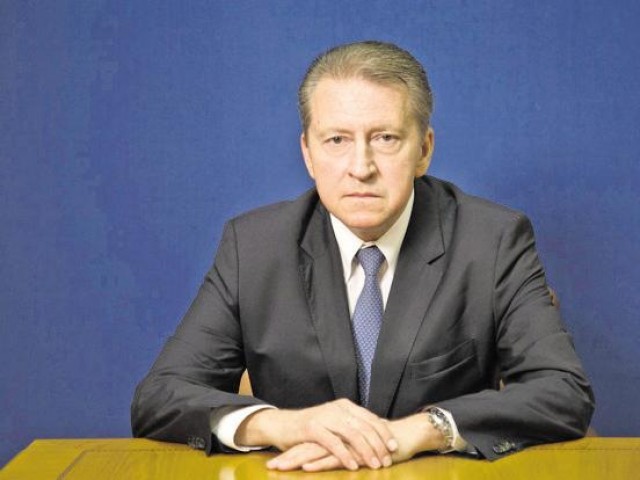And then there were 19 lil' piggies left. Woot!
Dominican Republic forges tie with China, breaks with Taiwan
(AP Photo/Andy Wong). Dominican Foreign Minister Miguel Vargas, left, and Chinese Foreign Minister Wang Yi prepare to shake hands after they signed the joint communique at the Diaoyutai State Guesthouse in Beijing, Tuesday, May 1, 2018.
By EZEQUIEL ABIU LOPEZ
Associated Press
SANTO DOMINGO, Dominican Republic (AP) - The Dominican Republic's government announced Monday that it is establishing diplomatic relations with China and breaking diplomatic ties with Taiwan and will later recognize Taiwan as an "inalienable part of Chinese territory."
The decision was the latest setback for Taiwan in the Caribbean and Latin America. Panama dropped its longtime ties with Taiwan last year and established relations with China, which considers Taiwan to be Chinese territory. The island is recognized as a sovereign nation by only 19 mainly small, developing countries, 10 of them in this region.
Taiwan swiftly condemned what it called China's "dollar diplomacy" and announced it would terminate ties with the Dominican Republic immediately, including all projects and assistance it provides to the Caribbean nation.
Beijing has been seeking to increase pressure on Taiwan's independence-leaning President Tsai Ing-wen. Tsai's ruling Democratic Progressive Party says it wants stable relations with China, but it hasn't followed Tsai's predecessor, Ma Ying-jeou, in endorsing the "one China" principle.
Flavio Dario Espinal, legal consultant to the Dominican presidential office, said at a news conference that the change in foreign policy was based on the "needs, potential and future prospects" of his Caribbean nation.
"History and socioeconomics reality now force us to change course," he said.
Some analysts say Chinese President Xi Jinping, one of the most powerful Chinese leaders in decades, seems determined to bring Taiwan under Beijing's control during his time in office, something that would place him in the history books alongside Mao Zedong.
The island's 23 million residents are strongly in favor of maintaining their de facto independent status, but Xi has previously warned a Taiwanese envoy that the issue of unification cannot be put off indefinitely.
In Taipei, Foreign Minister Joseph Wu said the Taiwanese government was "deeply upset by China's actions."
Wu said Beijing offered "vast financial incentives" to the Dominican Republic to get it to end 77 years of diplomatic relations with Taiwan. Wu warned that Beijing has failed to deliver on hundreds of millions of dollars in pledges to some of Taiwan's former diplomatic allies.
Taiwan "strongly condemns China's objectionable decision to use dollar diplomacy to convert Taiwan's allies," Wu said. He said such moves only served to "drive a wedge between the people on both sides of the Taiwan Strait."
"While Taiwan faces serious diplomatic challenges, the government will not bow down to pressure from Beijing," Wu said.
In Santo Domingo, Espinal said that even without formal diplomatic relations with China, trade between the two countries "has grown year after year to the point that today China is the second biggest supplier of our imports."
After Panama cut its ties with Taiwan, then-Taiwanese Foreign Minister David Tawei Lee visited the Dominican Republic last July as part of a campaign to shore up its relations and propose new cooperation projects. During his stay in Santo Domingo, Lee also met with Taiwan's ambassadors in Latin America to discuss strategies for not losing more allies.
The Dominican Republic has received millions of dollars in donations for development programs from Taiwan, but the government also started commercial and political contacts with China beginning in the middle of the past decade.
According to the Dominican government, bilateral trade with China has reached $2 billion a year, making the Dominican Republic the second-largest trading partner for China among the Caribbean and Central American nations.
Espinal said the government informed Taiwan of its move earlier Monday and thanked the Taiwanese for "the cooperation that we have shared for years." He said that had allowed "the development of very important programs" for the Dominican Republic.
The Dominican announcement came when it was already Tuesday in China, and Chinese State Councilor Wang Yi and Dominican Foreign Minister Miguel Vargas held a brief event Tuesday morning marking the establishment of ties.
In a joint statement, the countries said the move was "in keeping with the interests and desire of the two peoples" and that the Dominican Republic will sever ties with rival Taiwan as a result.
"The Government of the Dominican Republic recognizes that there is but one China in the world, that the Government of the People's Republic of China is the sole legal government representing the whole of China, and that Taiwan is an inalienable part of China's territory," the statement said.
Taiwan split from mainland China amid civil in 1949, and Beijing campaigns relentlessly to isolate the island globally. It cut off relations with Tsai's government shortly after she took office in 2016 and has been steadily ratcheting up both diplomatic and economic pressure. Chinese analysts say Beijing will likely continue to use its economic and political clout to lure away other Taiwanese allies until Tsai accedes to China's demands.
The office of Tsai, the Taiwanese president, said in a statement that Beijing's actions against Taiwan - including ramped up military drills around the island - have increased tensions in the region.
Beijing's actions have "unilaterally undermined the peaceful status quo across the strait and are not what a responsible member of the international community should be doing," the statement said. "Such mistakes should be stopped immediately."
Beijing insists that only it has the right to represent China in international society. The island is excluded from the United Nations and other multinational bodies that require official governmental recognition at China's insistence.
Associated Press reporters Emily Wang in Beijing and Johnson Lai in Taipei, Taiwan, contributed to this report.









